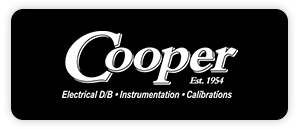Perhaps the harshest penalty in the tax law is sometimes called the “100 percent penalty.” If you are a “responsible” person in a company and you fail to remit federal taxes withheld from employees’ paychecks to the federal government, you can be held personally liable for 100 percent of the unpaid amount.
The tax law definition of a “responsible” party is any person responsible for collecting, accounting for or paying over taxes who willfully fails to perform the duty.
What constitutes willful behavior? “If a person knows that these required actions are not taking place for whatever reason, the person is acting willfully,” according to the IRS. “Paying other expenses of the business instead of paying the taxes is willful behavior.”
The IRS can be aggressive about seeking the 100 percent penalty, officially known as the Trust Fund Recovery Penalty. The courts frequently take its side, as illustrated by three court cases:
- Steven Lindsey was a 50 percent shareholder of TFS, a business that leased truck drivers solely to Clearwater Trucking Company, another company owned by the same parties. When Clearwater fell into financial difficulty, it stopped paying TFS for the leased drivers. As a result, TFS failed to pay employment taxes withheld from drivers’ wages. The IRS assessed the Trust Fund Recovery Penalty against Lindsey, but he contended he was not a “responsible” person since he didn’t have check-writing authority on the TFS account. Therefore, he argued, he did not willfully fail to pay the employment taxes. (However, he could sign checks on the Clearwater corporate account.)
The Tenth Circuit Court noted that check writing is only one facet considered in the equation. “Mr. Lindsey always knew if federal employee taxes were being withheld and deposited in TFS’s trust account for payment to the government,” according to court documents. Lindsey effectively had the power to pay the taxes, so he was personally liable for the unpaid amount. (U.S. v. Lindsey, 90 AFTR2d 2002-5468)
- Another case shows that more than one person can be held responsible for the Trust Fund Recovery Penalty. CDS Lines Inc., a Pennsylvania trucking company, failed to pay some of its federal employment tax obligations. The Chief Executive Officer (CEO) and the Chief Financial Officer (CFO) tried “to escape liability by arguing strenuously that the other was the sole responsible party,” according to court documents.
The U.S. District Court ruled that both officers were liable.
The CEO invested several million dollars to start the company, owned 80 percent of the stock, had unlimited hiring and firing abilities, check-writing authority, and day-to-day involvement in the business. He assigned the CFO duties “and certainly could have personally written the appropriate checks to the IRS to ensure that the employment taxes were paid,” the court stated.
However, the CFO also exercised “significant control” over the disbursement of funds, as evidenced by his ability to hire and fire employees, full authority to sign checks, signature on employment tax returns, and status as a 20 percent owner.
“While a responsible person must have significant control over the corporation’s finances, exclusive control is not necessary, the court noted. ‘It is not necessary that an individual have the final word on which creditors should be paid in order to be subject to liability …'” (Horovitz, U.S. District Court, WD Penn. 2008)
- Two taxpayers were involved in a partnership that owned a hotel. After the hotel was sold, the IRS determined that taxes withheld from employees’ paychecks were not paid to the government. The partners argued that they were not responsible for withheld taxes since they hired a couple to manage the hotel.
The court found the partners had legal control over the business at the time the tax deposits should have been made even though the couple managing the hotel had an option to purchase it and ultimately did buy the property. As evidence, the court noted that the partners had signatory control over the bank accounts. (Harry Hunison and Bud Vigue, 2002-1 USTC 50,179; U.S. District Court)
Moral: If you can be held personally liable for failure to pay over withheld employment taxes — whether or not you’re an owner or officer of the company — make sure that Uncle Sam is paid in a timely fashion. In some cases, the IRS can go after several people.
How Courts Decide:
In determining whether an individual is a person responsible for paying over withholding taxes, courts consider the following factors:
- Content of the corporate bylaws.
- Ability to sign checks on the company’s bank account.
- Signature on the employer’s federal quarterly tax return.
- Payment of other creditors in lieu of the federal government.
- Identity of officers, directors, and principal stockholders in the firm.
- Ability of individuals to hire and discharge employees.
- Identity of individuals in charge of the firm’s financial affairs.
Source: U.S. District Court for the Western District of Pennsylvania in Horovitz, 2008
Source: BizActions
About Scale Finance
Scale Finance LLC (www.scalefinance.com) provides contract CFO services, Controller solutions, and support in raising capital, or executing M&A transactions, to entrepreneurial companies. The firm specializes in cost-effective financial reporting, budgeting & forecasting, implementing controls, complex modeling, business valuations, and other financial management, and provides strategic help for companies raising growth capital or considering M&A/recapitalization opportunities. Most of the firm’s clients are growing technology, healthcare, business services, consumer, and industrial companies at various stages of development from start-up to tens of millions in annual revenue. Scale Finance LLC has offices throughout the southeast including Charlotte, Raleigh/Durham, Greensboro, Wilmington, Washington D.C. and South Florida with a team of more than 40 professionals serving more than 100 companies throughout the region.







